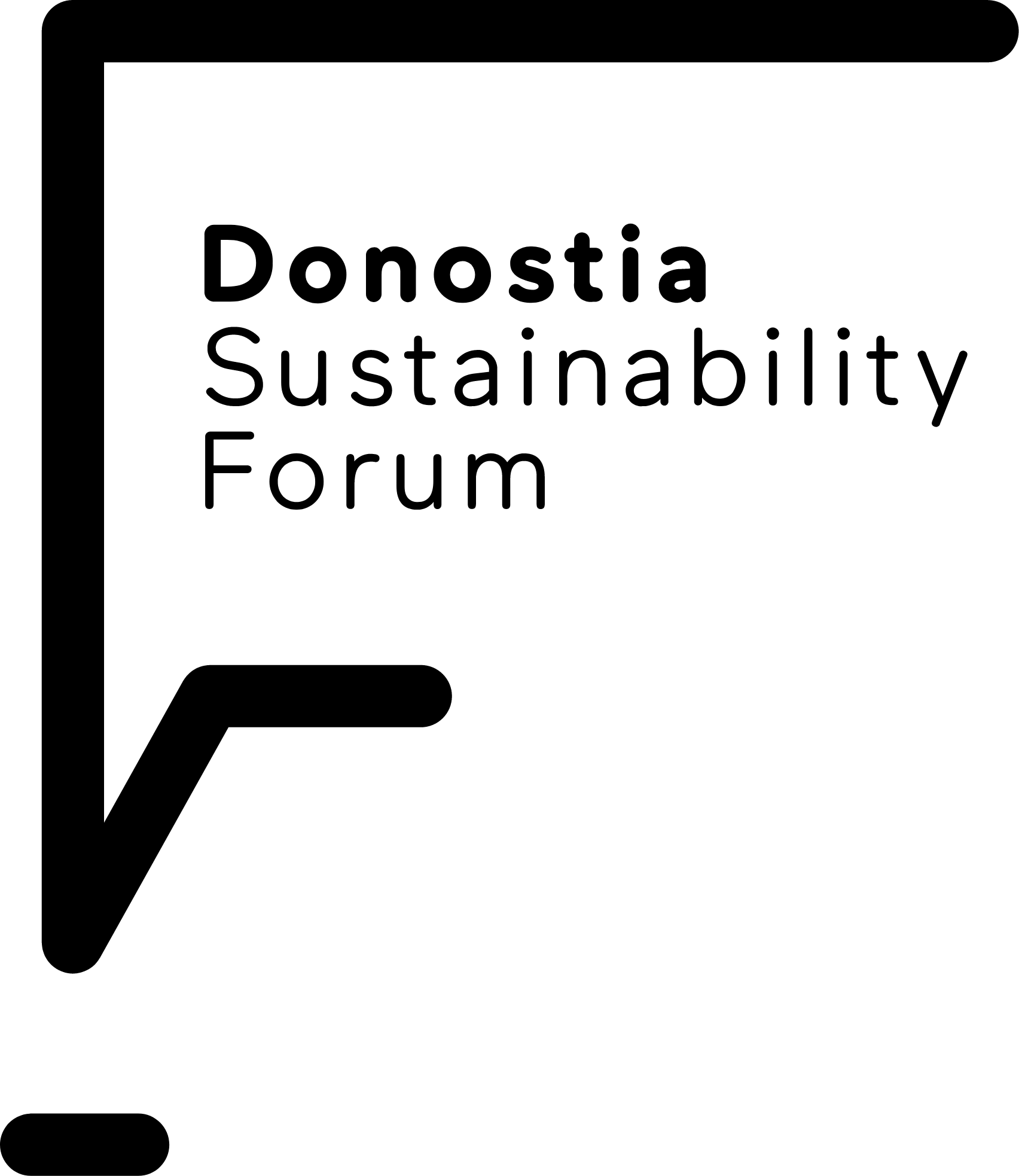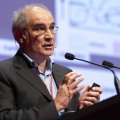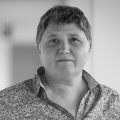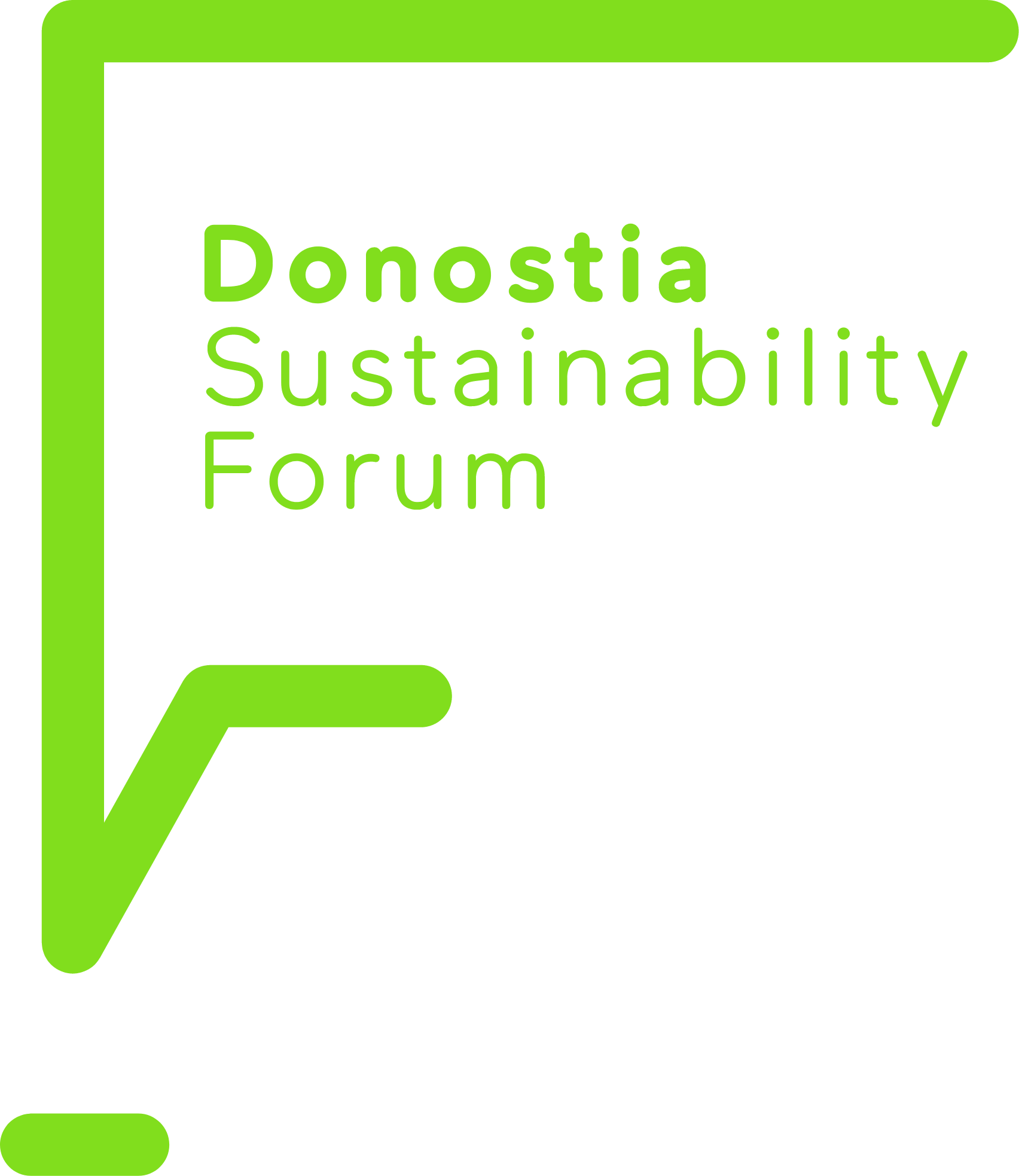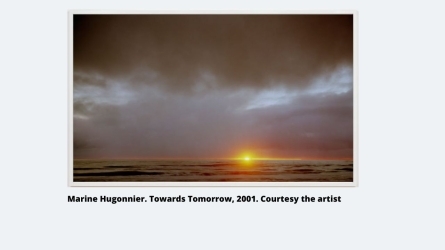
V Summer Course Guggenheim Bilbao Museoa: Art Models for the Earth System
Description
As part of the UPV/EHU Summer Courses, the Guggenheim Museum Bilbao in collaboration with Universidad del País Vasco/Euskal Herriko Unibertsitatea is organizing a two-day international symposium entitled Art Models for the Earth System. Set to take place on June 14 and 15 in Bizkaia Aretoa, this forum will focus on synergies between art and scientific research, and it will establish new relationships among experts from multiple fields for a better understanding of the dynamics of our planet, seeking innovative remedies to the climate crisis.
Considering the complexity of the present situation and the impossibility of approaching it through a single discipline, the Guggenheim Museum Bilbao will bring together creative agents—artists, architects, designers, and curators—and leading researchers in fields related to the Earth System to present their current work and provide ideas on possible collaborations that could have a positive impact on our planet. Based on the cross-cutting nature of contemporary artistic practices, and in particular, those situated at the intersection of art, science, ecology, and technology, the course aims to explore in depth a complex subject and establish new relationships between specialists from multiple fields.
The course will present a series of talks by eminent international figures, along with thematic round table discussions to promote dialogue and interaction among panelists. Structured around key planetary spheres or subsystems — such as the Biosphere, Geosphere, Hydrosphere, and Atmosphere; with an epilogue about the Noosphere — the modules of this symposium aim to reinforce the pillars of artistic-scientific collaboration in the ecological field and to generate new frameworks of possibility for the prediction, remediation and prospecting of our impacts and interactions with the environment. Through inspired dialogues, Art Models for the Earth System aims to foster new connections and confluences and thus transform methodologies.
Objectives
1. Explore the fields of study most closely linked to climate change and nurture the collaborative capacity of creatives and scientific agents to tackle the challenges of our time.
2. Creating forms of cross-pollination between diverse knowledge and practices is key to formulating novel scenarios of planetary sustainability and collaborative coexistence between species.
3. Work alongside world renowned experts to explore interactions between different areas of knowledge, understood as spheres and subspheres of the Earth System: Biosphere, Geosphere, Hydrosphere, Cryosphere, Atmosphere; in addition to the speculative Noosphere.
4. Provide a cross-cutting platform for joint learning, dialogue and knowledge transfer for professionals, students, researchers, and creators acting in areas connected by sustainability.
5. Promote, in a critical and contextualized way, the importance of generating hypotheses that propose new modes of interaction between human and non-human agents, in urban, rural, and natural ecosystems.
6. Within the framework of the environmental sustainability actions of the Guggenheim Museum Bilbao, the ultimate goal of this course is to move towards a horizon of future reflection defined by sustainability, resilience, and the creative transformation of society in the face of the current threats of irreversible planetary imbalance, in the ecological, cultural, and material sense.
Activity directed to
- All public
- University student
- Teachers
- Professionals
- Comunidad académica, estudiantes y profesionales de los ámbitos ligados a las prácticas artísticas, la innovación eco-tecnológica, la investigación científica y las políticas culturales.
Organised by
Directors
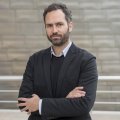
Manuel Cirauqui Esbec
Guggenheim Bilbao Museoa
Con un enfoque en las interacciones entre arte, tecnología y sostenibilidad, Manuel Cirauqui es curator en el Museo Guggenheim Bilbao desde 2016 donde se ha hecho cargo de importantes proyectos expositivos como Anni Albers. Tocar la vista (2017); El arte y el espacio (2017); Architecture Effects (2018, con Troy Therrien); Henri Michaux. El otro lado (2018); Soto. La cuarta dimensión (2019); y Future of Motion como parte de Motion. Autos, Art and Architecture de Norman Foster. También ha sido responsable de Film & Video en el Museo, incluyendo muestras individuales de Pierre Huyghe, Amie Siegel, Michael Snow, Javier Téllez, Diana Thater, Allora & Calzadilla, Alex Reynolds, Jesse Jones, William Kentridge, Sharon Lockhart, Cecilia Bengolea, Monira Al Qadiri, y The Otolith Group, entre otros. Cirauqui tiene una extensa carrera académica y ha impartido conferencias en universidades como Paris Sorbonne; Istituto Marangoni, Florencia; Royal Academy of Art, Estocolmo; Aalto University of Art and Design, Helsinki; Rhode Island School of Design, Providence; Maryland Istitute College of Art, Baltimore; y EINA, Barcelona. Su experiencia curatorial incluye Museo Tamayo, México; Dia Art Foundation, NY; Jeu de Paume.
Speakers

Alexandra Boghosian
I am a scientist from New York City working at the intersection of glaciology, oceanography and climate. Ultimately, the fate of the ice is the fate of my hometown. I use satellite and airborne data and images, and develop mixed reality tools to understand the massive ice sheets of Greenland and Antarctica. Motivated by the vulnerability of coastal communities to sea level rise, I explore the cultural and societal context for my research through interdisciplinary collaborations.
Full Professor of Palaeontology at the University of the Basque Country UPV/EHU, PhD in Geology from the University of Exeter (UK), Head of the Geology Department (UPV/EHU), Principal Investigator of the Harea-Coastal Geology group of the UPV/EHU (IT1616-22), Coordinator of the Doctoral Programme in Quaternary: Environmental Changes and Human Footprint (UPV/EHU), Member of the Anthropocene Working Group (International Commission on Stratigraphy), Associate Researcher of the Basque Center for Climate Change (BC3) and Head of the Joaquín Gómez de Llarena Laboratory of the Aranzadi Science Society. Author of numerous scientific and informative publications on the evolution of the coastal zones during the Holocene and Anthropocene as a consequence of changes in sea level and human impact.
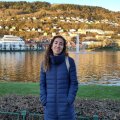
Marta Coll
I am a senior researcher working at the Institute of Marine Science (ICM–CSIC) (Barcelona, Spain). I am a member of the Global Ocean Modelling (GOM) from the Institute for the Oceans and Fisheries (University of British Columbia, Vancouver, Canada), and of the Ecopath International Initiative (EII) non-profit Research Association (Barcelona, Spain). I participate and coordinate research projects and activities, I supervise PhD, MSc and BSc students and I teach specialized courses on marine ecology and ecosystem modelling. I graduated in Environmental Sciences at the Autonomous University of Barcelona (Spain) in 2000, after developing my undergraduate project at the Center for Marine and Limnology Research of the University of Costa Rica (1999-2000) in San José de Costa Rica (Costa Rica). I developed my M.Sc. and Ph.D. at the Autonomous University of Barcelona and the Institute of Marine Science (ICM–CSIC) from 2001-2006 (Barcelona, Spain) with research visits abroad in Italy, Canada and South Africa. In 2007-2008 I visited Dr. Lotze’s Lab at the Biology Department of Dalhousie University (Halifax, Canada) as a post-doctoral researcher. From 2009-2011 I was a EC Marie Curie OI Fellow in Dr. Lotze’s Lab and in Dr. Christensen’s
Salomé Cuesta
Salomé Cuesta (Valencia, 1964) artista, doctora en BBAA y catedrática de Escultura en la Facultad de Bellas Artes, Universidat Politècnica de València (UPV). Ha sido docente en la Facultad de Bellas Artes de Cuenca -UCLM (1989-1998) y en programas de máster y doctorado de varias universidades. En sus exposiciones plantea la materialización/desmaterialización del objeto escultórico a través de la luz y la transparencia; entre sus exposiciones destacan, “Horas separadas” Galería Juana Mordó (1992). “Intemporar”, Galería Antoni Estrany, (1992). “...y el tiempo se hizo”, Centro de Artes Visuales Fundación Helga de Alvear (2015). Ha colaborado en la producción de textos, intervenciones y obras en el Grupo de investigación Laboratorio de Luz (UPV). Miembro del Grupo ACT de FECYT que elaboró el Libro Blanco de la interrelación entre Arte, Ciencia y Tecnología en el estado español (2007) dirigido por José Luis Brea. Junto a Bárbaro Miyares impulsó la plataforma nonsite.es, sobre producción, difusión y distribución de las prácticas artísticas contemporáneas. Desde junio de 2021 es Vicerrectora de Arte, Ciencia, Tecnología y Sociedad en la Universitat Politècnica de València.
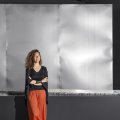
Giulia Foscari Widmann Rezzonico
Giulia Foscari is an architect, curator and activist who has been practising in Europe, Asia and the Americas. She is the founder of UNLESS, a non-profit agency for change, and of its alter ego UNA, an architecture studio focussed on cultural projects. Projects by UNA include the Anish Kapoor Foundation under construction in Venice. Her work was exhibited internationally. Giulia taught at Hong Kong University and at the Architectural Association of London. She is the author of “Elements of Venice” and the editor of award-winning “Antarctic Resolution”, for which she received the 2022 S+T+ARTS Grand Prize by the European Commission. Giulia serves in the International Council of the MoMA, as well as in the Board of the “Fondazione dei Musei Civici di Venezia” and of the environmental NGO “Antarctic and Southern Ocean Coalition”.

Marine Hugonnier
Artist

Armin Linke
Armin Linke (b. 1966, Milan) is a photographer and filmmaker combining a range of contemporary image processing technologies to blur the border between fiction and reality. Linke indagates the formation – so called Gestaltung - of the natural, technological and urban environment in which we are living. Armin Linke´s oeuvre - photographs and films - function as tools to become aware of the different design strategies. Through working with his own archive, as well as with other media archives, Linke challenges the conventions of photographic practice, whereby the questions of how photography is installed and displayed become increasingly important. In a collective approach with other artists, as well as with curators, designers, architects, historians, philosophers and scientists, the narratives of his works expand on the level of multiple discourses.Linke has served as a research affiliate at the MIT Visual Arts Program, guest professor at the IUAV Arts and Design University in Venice, and professor for photography at the Karlsruhe University for Arts and Design. Currently Armin Linke is guest professor at ISIA, Urbino (IT) and artist in residence at the KHI Kunsthistorisches Institut in Florenz.
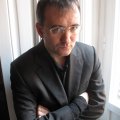
Juan Luis Moraza
Juan Luis Moraza (Vitoria, 1960). Escultor. Profesor Titular de la Universidad de Vigo, e imparte docencia en el Máster de Creación e Investigación en la UPV/EHU, y en el Master de Investigación de la Universidad Complutense de Madrid; siendo también profesor invitado habitual en varias universidades nacionales e internacionales. Viene realizando exposiciones individuales y colectivas desde hace más de cuarenta años. Representó a España en la Bienal de São Paulo (1994), y mostró sus obras en la Bienal de Venecia de 2001. Entre sus últimas exposiciones individuales cabe destacar, "tripalium” (Madrid,2020), “de oficio" (Barcelona, 2017), "trabajo absoluto" (Coruña. 2016), o "república" (Museo Reina Sofía, Madrid, 2014). Sus obras forman parte de importantes colecciones, tanto públicas (MACBA, Barcelona. Reina Sofía, Madrid; ARTIUM, Vitoria. FRAC -Fonds Régional d´Art Contemporaine de la Corse-, Centro 2 de Mayo, etc.), como privadas (Guggenheim Bilbao, Caixa, Rona Hoffman, Dona & Howard Stone. Franz Paludetto, Fundación Botín, Fundación Coca-Cola, Helga de Alvear, Laura Skoler, Dennis Braddock, Dani Levinas, Alejandro Zaia, etc.).

Lekan Popoola
2012 - till date. Postdoctoral Research Associate at the Centre for Atmospheric Science, Department of Chemistry at the University of Cambridge where with Professor Rod Jones. My main interest involve studying of a problem of huge significance in the form of air quality and its impact on human health. My work mainly focuses on development and deployment portable air quality sensors. In addition, I am responsible for developing detailed analysis technique for data captured as well as validating air quality models using field data. My recent research involves deploying, managing and processing of data from a network of air quality sensor nodes at London Heathrow Airport as part of the Sensor Network for Air Quality, SNAQ Project. Part of the aims of the project were to provide source attribution within and around the airport, determine emission indices for different aircraft operation modes as well as comparing measurement data to dispersion model outputs for the airport. More recently, I am involved in a European Commission consortium (Citi-sense project) aimed at monitoring air quality in seven megacities across Europe using low-cost sensor technology.
Maria Ptqk
Nacida en Bilbao en 1976. Doctora en investigación artística (UPV-EHU) y Premio Extraordinario de Doctorado, licenciada en Derecho y graduada en Ciencias Económicas, DEA en Derecho Internacional Público en Paris II-Sorbonne, Máster en Gestión cultural en la Universidad de Barcelona, DEA en Derecho de la Cultura en la Uned-Carlos III de Madrid. Trabaja en el sector cultural desde el año 2000. Desarrolla tareas de comisariado, dirección de proyectos y asesoramiento. Ha trabajado, entre otros, con Medialab Prado (Madrid), Azkuna Zentroa – Alhóndiga Bilbao, Fundación Daniel y Nina Carasso, CCCB – Centro de Cultura Contemporánea de Barcelona, Centro de Artes Visuales Jeu de Paume (París), La Gaité Lyrique (París), GenderArtNet (European Cultural Foundation), Donostia-San Sebastián 2016. Capital Europea de la Cultura, LABoral Centro de Arte y Creación Industrial (Gijón). Ha sido integrante del Consejo Vasco de la Cultura (2009-2012) y del comité científico del VI Encuentro Cultura y Ciudadanía (Ministerio de Cultura y Deporte). Ha comisariado las exposiciones «Soft Power» con Proyecto Amarika Proiektua (Vitoria-Gasteiz, 2009), «A propósito del Chthuluceno y sus especies compañeras» (Espace virtuel du Jeu de Paume, París, 2017).
Prof. Sanz holds a Ph.D. in Biological Sciences from the Universidad de Valencia (1991) and has expertise in several scientific areas like Ecophysiology, Air pollution effects, lower and higher plants, Atmospheric dynamics and chemistry, Nitrogen and carbon cycles, Greenhouse Gasses and other related gases, Greenhouse gas inventories, LULUCF and REDD+. She has been strongly involved in the policy dimension of Climate Change, guiding political decisions carried out at centres such as the FAO (United Nations Food and Agriculture Organisation) or the UNFCCC (United Nations Framework Convention on Climate Change). She has an expertise on multilateral processes, regulatory frameworks, policy measures and instruments of Climate Change Policy, and led the implementation of different programmes with a multidisciplinary-based approach.
Gustavo Ariel Schwartz Pomeraniec
Consejo Superior de Investigaciones Científicas
Gustavo Ariel Schwartz is a physicist and writer of essays and fictions exploring the relationships among art, science, literature and the humanities. After receiving his PhD in Physics from the University of Buenos Aires (Argentina) in 2001, he spent two years as a postdoctoral researcher at the Chalmers University of Technology in Goteborg (Sweden). Then he moved to San Sebastián (Spain) to research at the Donostia International Physics Center (DIPC). In 2005, he won his first literary prize with the short story The Leak. Since 2008, he has been a scientist at the National Spanish Research Council and developed his research activity at the Material Physics Center in San Sebastián. He combines his scientific research with his role as the founder and director of the Mestizajes Program at the DIPC, whose purpose is to explore and cross the borders among art, science, literature, and the humanities. Within the framework of this program, he organized four International Conferences on Literature and Science (2011, 2014, 2017, 2021) and launched the Writers in Residence Program in 2012. He has co-authored, with Luisa Etxenike, the theatre play The Interview, which premiered in San Sebastián in 2013.
Olga Subirós
Olga Subirós is an architect and curator of exhibition projects that provide an integrative approach to twenty-first century culture and the far-reaching transformations of the digital era and systemic crisis. Subirós’s proposal AIR/ARIA/AIRE won the competition for the participation of Catalonia at the 17th Venice Architecture Biennale 2021 with an investigation into air pollution in urban areas reclaiming changes in city model as air is a common asset upon which our survival depends. Subirós, alongside with José Luis de Vicente, was the curator of Big Bang Data, an exhibition on the datafication of the world presented in venues including the Singapore ArtScience Museum and the MIT Museum, the contents of which were adapted and extended for each centre. Subirós won the international competition for the Data Square exhibition at the EPFL-ArtLab in Lausanne exhibited till 2020. Subirós has designed the exhibition on chef Ferran Adrià’s creative process and the El Bulli restaurant held at Somerset House in London, Boston Science Museum, and Fundación Telefónica in Madrid. Subirós also did the staging of the exhibition Are you ready for television? curated by Chus Martínez at the MACBA.

Daniela Zyman
Daniela Zyman is the artistic director of TBA21 Thyssen-Bornemisza Art Contemporary,
Registration fees
| Face-to-face | Until 14-06-2023 |
|---|---|
| 84,00 EUR | |
| 71,00 EUR | |
| 59,00 EUR | |
| 25,00 EUR | |
| 42,00 EUR | |
| 0 EUR |
| Live online | Until 14-06-2023 |
|---|---|
| 84,00 EUR | |
| 71,00 EUR | |
| 59,00 EUR | |
| 25,00 EUR | |
| 42,00 EUR | |
| 0 EUR |
Venue
Bizkaia Aretoa-UPV/EHU
Avenida Abandoibarra, 3. 48009- Bilbao
Bizkaia
Bizkaia Aretoa-UPV/EHU
Avenida Abandoibarra, 3. 48009- Bilbao
Bizkaia
